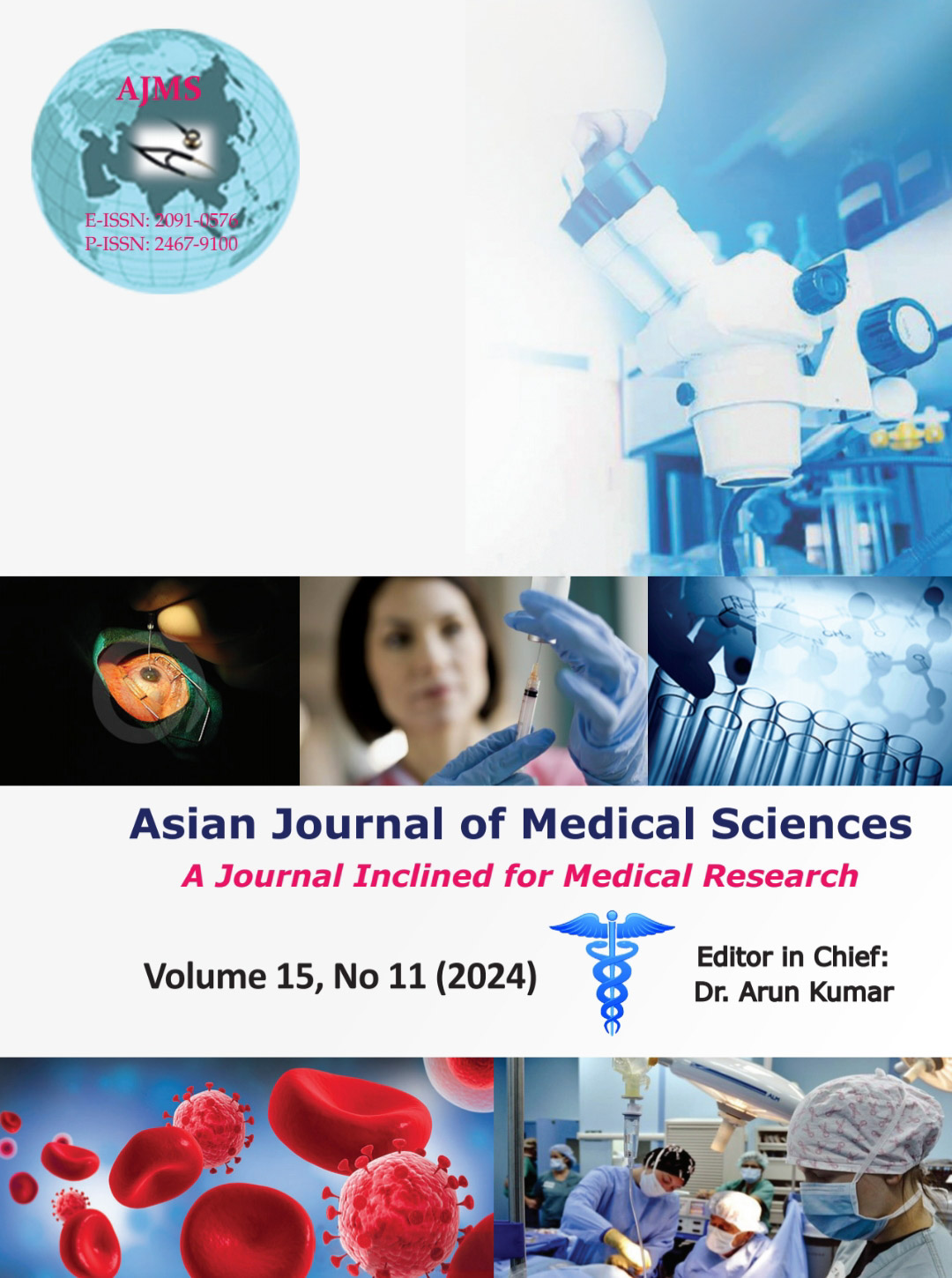Correlating Thompson score and cardiac dysfunction in neonates suffering from perinatal asphyxia – A prospective observational study
Keywords:
Perinatal asphyxia; Newborn; Cardiac dysfunction; Thompson scoreAbstract
Background: Perinatal asphyxia continues to be a leading cause of neonatal morbidity and mortality worldwide. It causes multiorgan failure with brain involvement as the major organ of concern (hypoxic-ischemic encephalopathy). Cardiac dysfunction is also a feature of perinatal asphyxia.
Aims and Objectives: The study and to correlate cardiac dysfunction detected by cardiac biomarkers and echocardiography with the severity of perinatal asphyxia as graded by the Thompson score.
Materials and Methods: In this prospective observational study, babies with Apgar score <7 at 1 min received in the sick newborn care unit of a tertiary care hospital in West Bengal, India, were enrolled over 6 months. Thompson’s score was assessed on the 1st day with the estimation of creatine phosphokinase MB (CPK-MB) and troponin (Trn) T within 24 h of birth. Thompson score assessment was continued twice daily till discharge or death. Transthoracic echocardiography was done at the earliest within the 1st week.
Results: Of the 81 neonates enrolled, 28 neonates had cardiac dysfunction detected by positive Trn T and raised CPK-MB. Echocardiography showed 15 neonates (18.5%) had systolic dysfunction whereas 13 (16.0%) had tricuspid regurgitation. There was a strong association between Thompson score and Trn T and CPK-MB (rpb=0.85, rho=0.97, respectively, P≤0.001). Thompson score was highly sensitive and specific in detecting the need for mechanical ventilation, and fluid restriction in inotrope-resistant cardiac dysfunction (sensitivity 90%, 78.4%, respectively; and specificity 95.8%, 97.7%, respectively), in predicting initiation of feeding and final outcome (sensitivity 82.9% and 100%, respectively, specificity 97.8%, 89%, respectively).
Conclusion: Clinical assessment by the Thompson score can predict the degree of cardiac dysfunction, mechanical ventilation requirement, feed initiation, and final outcome in perinatal asphyxia.
Downloads
Downloads
Published
How to Cite
Issue
Section
License
Copyright (c) 2024 Asian Journal of Medical Sciences

This work is licensed under a Creative Commons Attribution-NonCommercial 4.0 International License.
Authors who publish with this journal agree to the following terms:
- The journal holds copyright and publishes the work under a Creative Commons CC-BY-NC license that permits use, distribution and reprduction in any medium, provided the original work is properly cited and is not used for commercial purposes. The journal should be recognised as the original publisher of this work.
- Authors are able to enter into separate, additional contractual arrangements for the non-exclusive distribution of the journal's published version of the work (e.g., post it to an institutional repository or publish it in a book), with an acknowledgement of its initial publication in this journal.
- Authors are permitted and encouraged to post their work online (e.g., in institutional repositories or on their website) prior to and during the submission process, as it can lead to productive exchanges, as well as earlier and greater citation of published work (See The Effect of Open Access).




